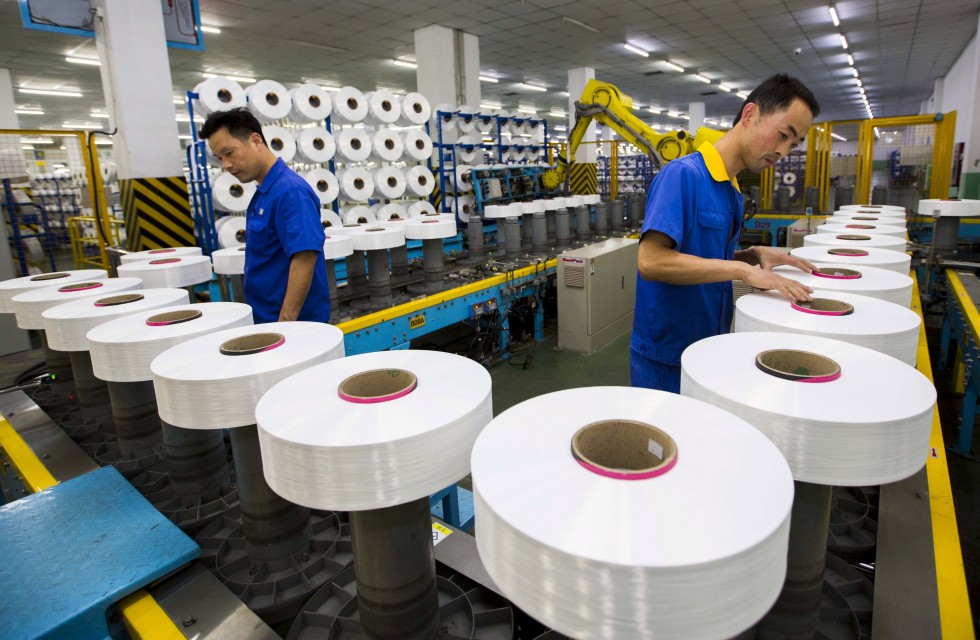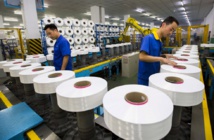As per an official from China’s Central Bank, downward pressure on China’s economy is likely to persist during the second half of this year. Exports and government spending on infrastructure are unlikely to increase.
The National Business Daily, quoted Sheng Songcheng, the Director of Statistics from the People's Bank of China (PBOC), saying that as per a second quarter survey, Chinese companies too are not optimistic about brighter business prospects.
Cooling investments, pressured by uneven demand in the domestic market and in the export market as well, is likely temper China’s economic growth and act as a drag for its economy. As per forecasts, the Chinese GDP has been downgraded to 7% from its earlier 7.4%, which is its lowest from a quarter of a century.
Adding to its economic burden is the country’s stock markets, which since mid-June has taken a near vertical fall, reinforcing believes that policymakers may finally roll out measures to avert further fall as well as install support systems that will help stabilise the markets.
As part of its measures to rope in the freefall, the PBOC has released a number of measures, including cutting interest rates, twice since last November, and loosening lending mechanisms by banks. These measures have undoubtedly acted as break to the freefalling market, but however, they have not managed to stop and reverse the downward trend, which is worrisome.
The debt of the local government has already touched 2 trillion yuan, $322.08 billion, and bond swaps may not be able to fully cover maturing debts, warns Sheng.
As per Sheng, the PBOC need to step up its vigil on local government financing, so as to monitor and put in correctional measures in the downward property market.
Sheng also expects the results of the second quarter to be lower than market expectations. The upside too this story, feels Sheng, is that the risks the banks are exposed to will “become clearer”. However, he feels that there is a possibility that the real estate market could rebound in the second half and act as a support to the flailing economy.
Sheng says that you would not be too off-the-mark to expect the economy to grow at 7%, while the inflation is set at 1.5% and the M2 at around 2%. The M2 is a broad index that measures the supply of available money in the economy.
Economists at the PBCO had expected stronger growth in June and expects the growth to pick up its pace in the next 6 months, as the effects of previous policy measures are likely to kick in and stabilise the market.
However, this view is not shared by other analysts. Some of who, even call it too optimistic, since they point out, there is a huge surplus of inventories in the form of unsold homes, and the local government’s money is stuck in debt, thus these conditions are likely to restrict the local government’s abilities to spur further growth by spending on additional infrastructure projects.
As per an official survey, in July, growth in Chinese manufacturing activities stalled due to weakening demand in the local and international market.
Source(s): Reuters.com
The National Business Daily, quoted Sheng Songcheng, the Director of Statistics from the People's Bank of China (PBOC), saying that as per a second quarter survey, Chinese companies too are not optimistic about brighter business prospects.
Cooling investments, pressured by uneven demand in the domestic market and in the export market as well, is likely temper China’s economic growth and act as a drag for its economy. As per forecasts, the Chinese GDP has been downgraded to 7% from its earlier 7.4%, which is its lowest from a quarter of a century.
Adding to its economic burden is the country’s stock markets, which since mid-June has taken a near vertical fall, reinforcing believes that policymakers may finally roll out measures to avert further fall as well as install support systems that will help stabilise the markets.
As part of its measures to rope in the freefall, the PBOC has released a number of measures, including cutting interest rates, twice since last November, and loosening lending mechanisms by banks. These measures have undoubtedly acted as break to the freefalling market, but however, they have not managed to stop and reverse the downward trend, which is worrisome.
The debt of the local government has already touched 2 trillion yuan, $322.08 billion, and bond swaps may not be able to fully cover maturing debts, warns Sheng.
As per Sheng, the PBOC need to step up its vigil on local government financing, so as to monitor and put in correctional measures in the downward property market.
Sheng also expects the results of the second quarter to be lower than market expectations. The upside too this story, feels Sheng, is that the risks the banks are exposed to will “become clearer”. However, he feels that there is a possibility that the real estate market could rebound in the second half and act as a support to the flailing economy.
Sheng says that you would not be too off-the-mark to expect the economy to grow at 7%, while the inflation is set at 1.5% and the M2 at around 2%. The M2 is a broad index that measures the supply of available money in the economy.
Economists at the PBCO had expected stronger growth in June and expects the growth to pick up its pace in the next 6 months, as the effects of previous policy measures are likely to kick in and stabilise the market.
However, this view is not shared by other analysts. Some of who, even call it too optimistic, since they point out, there is a huge surplus of inventories in the form of unsold homes, and the local government’s money is stuck in debt, thus these conditions are likely to restrict the local government’s abilities to spur further growth by spending on additional infrastructure projects.
As per an official survey, in July, growth in Chinese manufacturing activities stalled due to weakening demand in the local and international market.
Source(s): Reuters.com



















